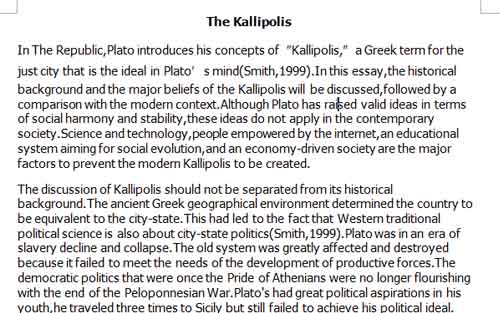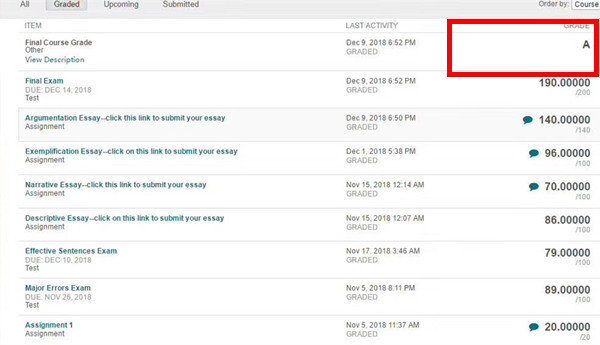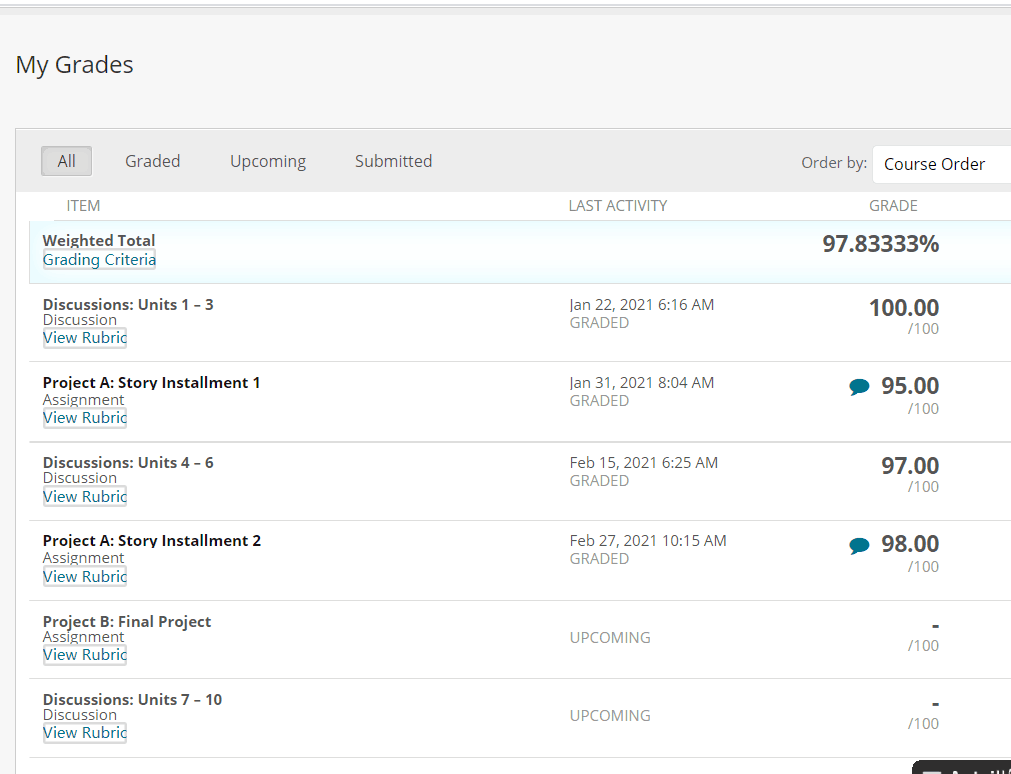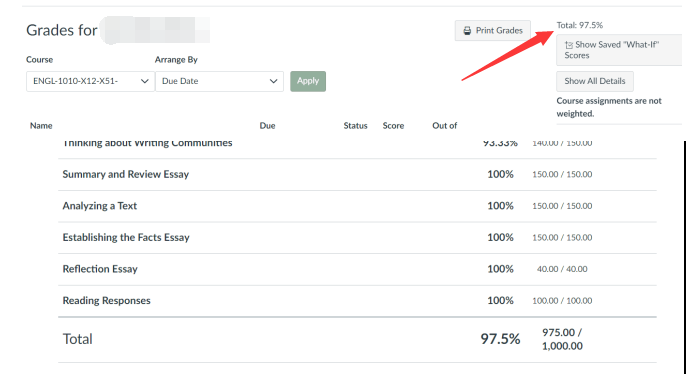本文是一篇Essay代写范文,题目为The Impacts of the Digital Revolution on British Broadcasting Corporation Television Station,范文内容主要讨论了数字革命对英国广播公司电视台的影响,范文内容和格式仅供留学生参考学习,不得抄袭,如有Essay代写需要,请联系网站客服。

Introduction引言
Media generally serves as a significant part of people’s daily life as it helps people to conduct communications and information disseminations. In particular, people get accustomed to use media to search, receive, process, and disseminate information or data. In the modern society, digital technology has experienced dramatic improvement along with the growth of global economy as well as the expansion of globalization. Specifically, the improvement of digital technology has brought a profound impact on the media industry. An increasing number of media tend to take advantage of digital technology to follow the trends of digitalized media and media convergence. Particularly, global media industries have generally conducted digital revolution on its production, distribution, and consumption of new products. This essay aims to critically examine the impacts of the digital revolution on one specific TV station. Specifically, British Broadcasting Corporation (BBC) Television Station is chosen for the analysis. As a whole, this easy can be simply divided into four sections. Firstly, it will briefly introduce BBC and its television station. Secondly, it will describe the basic aspects of digital revolution, such as its definition, history and potential causes. Thirdly, it will critically analyze the impacts of the digital revolution on BBC Television Station, including its production, distribution, and consumption of news products. Lastly, it will sum up the findings.
媒体通常是人们日常生活的重要组成部分,它帮助人们进行交流和信息传播。特别是,人们习惯于使用媒体来搜索、接收、处理和传播信息或数据。在现代社会,随着全球经济的增长和全球化的扩大,数字技术也经历了巨大的进步。具体来说,数字技术的进步给传媒业带来了深刻的影响。越来越多的媒体倾向于利用数字技术来顺应数字化媒体和媒体融合的趋势。特别是全球传媒业对其新产品的生产、分销和消费普遍进行了数字化革命。本文旨在批判性地考察数字革命对某一特定电视台的影响。具体来说,本文选取英国广播公司(BBC)电视台进行分析。总的来说,这个简单可以简单地分为四个部分。首先,简要介绍英国广播公司及其电视台。其次,阐述了数字革命的基本内涵、历史和潜在原因。第三,批判性地分析数字革命对BBC电视台的影响,包括其新闻产品的制作、发行和消费。最后,对研究结果进行总结。
Description of British Broadcasting Corporation英国广播公司简介
As one of the world’s popular media group, the British Broadcasting Corporation (BBC) is the public-service broadcaster of the United Kingdom (Thiranagama, 2010). In the history of global media industry, the BBC is the world’s oldest global broadcasting group and the biggest broadcaster in the globe.
作为世界上最受欢迎的媒体集团之一,英国广播公司(BBC)是英国的公共服务广播公司(Thiranagama,2010)。在全球传媒业的历史上,BBC是世界上历史最悠久的全球广播集团,也是全球最大的广播公司。
The BBC mainly receives the yearly television license fee from all British corporations, organizations, and households. In particular, the fee serves as the funding and financial support for BBC effectively operating its television, online services, and extensive radio covering the areas and countries of the United Kingdom. In addition, it is the British Government and Parliament that sets and allows the fee (Norman, 1984).
As a broadcasting corporation, the BBC provides a variety of media services for the global audience’s media consumption. In fact, television service can be considered as one of the most significant media services of the BBC. BBC Television has operated in the UK under the terms of the Royal charter since 1927. In addition, it has created productions of television programs and news products from BBC studios since 1932 (Norman, 1984). Four years later, BBC television started its regular and formal service of television broadcasts. Still, the television service of BBC is financially supported by the television license. Therefore, the domestic television channels of BBC are broadcast without any advertising funds but collectively they account for over 30 percent of all UK viewing (Media Newsline, 2010). Since the digital technology has rapidly developed, BBC television takes advantage of digital technology so as to carry out digital revolution and innovation on its production, distribution, and consumption of News products.
Basic Aspects of Digital Revolution:
The digital revolution generally describes the transformation from analog, mechanical, and electronic technology to the digital technology available in the contemporary era (Johnson, 2011). In particular, it is the technological development and the economic growth that fuels the emergence and development of digital revolution.
In 1947, the transistor was first introduced, which opened the path for developing the advanced digital computers. With the efforts of professionals and governments, the use of digital computer systems was vastly promoted around the world during the late 1950s and 1960s (Goodman, 1990). In the 1980s, people around the world got accustomed to use the computers as necessary and useful tools for many jobs by the end of the decade. At that time, the first cell phone was invented and introduced to the world (Johnson, 2011). In the early 1990s, the World Wide Web emerged and the Internet had become a necessary section of most business operations. Specifically, most Americans tended to view Internet as a vital part of their daily life in the late 1990s. Along with the technological development, the digital revolution had started to spread in the global scale since the 21st century. Particularly, an increasing number of people started to use computers and mobile phones. In addition, the television industry began to change from using analog to digital signals (Noll, 2002). With the improvement of digital technology, the world’s Internet users had taken up more than 25 percent of the total population since 2010. Besides, it was estimated that the world’s mobile phone users took up approximately 70 percent of the total population (Johnson, 2011).
Nowadays, the digital revolution can be commonly seen every aspects of people’s daily life, such as politics, economics, education, and most importantly media. With the use of the Internet platform and the development of cloud computing services, global users are able to consume media as well as applications via their computers, mobile phones, and other digital products (Sterne, 2005).
The Impact of Digital Revolution on British Broadcasting Corporation Television Station:
In fact, an increasing number of media corporations (such as BBC Television Station) tend to conduct digital revolution so as to attract more global audiences and provide more convenience for them in the modern society. In this section, it will critically illustrate the impact of digital revolution on the production, distribution, and consumption of BBC Television Station.
1) Production of News Products:
BBC Television Station had started to apply digital technology in its production since 1998 (Kung, et al., 1999). At that time, digital signals were used to replace the traditional analog signals in the television broadcast. In particular, BBC Television had established many digital television channels since 1998, such as BBC Choice, BBC Knowledge, BBC News, BBC HD, BBC Parliament, CBBC, and CBeebies. Those channels were covering the whole nation with the use of digital signals. As usual, the use of digital signals can help BBC Television to save broadcast budgets and improve the quality of television broadcast. In other words, the television audiences are able to spend a smaller amount of money to have better watching experiences.
In 1999, BBC Television established digital interactive television services. Specifically, the television audiences could enjoy the digital television services via BBC Text (now known as Red Button) (Hanley & Viney, 2001). To be more specific, the television audiences could record the television shows and enjoy video-on-demand services by just pushing the Red Button. From 2011 to 2012, BBC Television decided to expand and develop the Red Button service. In particular, the corporation aimed to increase the number of Red Button users through putting more investments on the developing of Red Button (Zhou & Long, 2013).
As a whole, BBC Television has been concentrating on the development of digitalized television broadcast for the recent decades. Speaking of the process of digitalized television production, BBC Television first established independent television channels that broadcasted via digital signals. In this way, original contents and resources could be accumulated effectively via digitalized television channels (Marton, & Mariategui, 2015). Then, BBC Television developed Teletext Television in Audience-Television Interaction and eventually in Audience-Audience Interaction. Therefore, BBC Television had transformed traditional television production in digitalized television production by combining the digital content entities with virtual interactive services (Thumim & Chouliaraki, 2010). In fact, the combination of digital content entities and virtual interactive services are the key elements for digitalized television production.
2) Distribution of News Products:
The operation of BBC Television is mainly funded by the television fee from UK television audiences. In the meanwhile, the UK government also provides financial support for the operation and broadcast of BBC Television. Therefore, all television channels are broadcasted without any commercial advertising. In fact, the impact of digital revolution can be seen in the financial distribution of BBC Television. It is estimated that the total revenue of BBC was about 56 billion GBP in the year of 2012. In particular, about 36 billion GBP was from television license fee while about 15 billion GBP was the commercial revenue from BBC World News, BBC Worldwide, and BBC S&PP (Zhou & Long, 2013).
As a matter of fact, the total revenue is mainly used in three media operations including television broadcast, radio broadcast, and online broadcast. During 2011 to 2012, BBC had invested about 23.5 billion GBP, 6.5 billion GBP, and 1.9 billion GBP in the operation of television broadcast, radio, broadcast, and online broadcast respectively (Zhou & Long, 2013).
In the television broadcast section, BBC distributed 23.349 billion GBP in 2012 while it invested 23.72 billion GBP in 2011. Meanwhile, BBC invested more money in the development of online broadcast in 2012 compared with that in 2011 (Zhou & Long, 2013). BBC made changes of the financial distributions because it paid more attention to the development of online broadcast. In particular, BBC had followed the digitalized media tend so it spared great efforts to develop digitalized television broadcasting. BBC Online could be generally considered as a typical example of digitalized media (Hermida, 2009). In fact, the executives of BBC asked managers of BBC Television to concentrate on developing online television broadcasting. As a consequence, an increasing amount of money was invested to establish television broadcast websites and improve the services of online television broadcasting. For instance, BBC Online received more investments for its operation, management, and development.
3) Consumption of News Products:
The digitalized trend also affects the consumption of news products in BBC Television. In 2007, BBC Television established an online watching service called iPlayer. The Internet users were able to watch weekly television products or listen to radio broadcast of BBC via iPlayer. To some extent, the establishment of iPlayer symbolized the technological integration of multimedia transmission channels. As a consequence, digital revolution could be effectively conducted on the consumption of News products. In the meanwhile, BBC Television came to realize the significance of interactive services, which eventually resulted in the innovations and transformation in the production, packaging, and transmission of News products.
One year later, BBC Television established the 2nd version iPlayer. Specifically, iPlayer was first introduced in the iOS system for iPhone and iPod Touch users. Several months later, iPlayer was available for Android mobile system (Kant, 2014). In this way, the users could have their consumptions of News products via their smart phones and other digital products. On December, 2008, BBC Television cooperated with Adobe Corporation to produce iPlayer Desktop, which provided chances for the users to have better media consumptions.
Since social media has experienced rapid development, functions for social networking are applied in the iPlayer. Nowadays, the users can connect their Facebook, Twitter to share the consumptions of News products via iPlayer. According to the director of Creation and Develop Department of BBC, BBC Television will invest a great amount of money to develop iPlayer and we will continue to develop the 4th version iPlayer in the near future (Kant, 2014).
Conclusion
Based on the above description and analysis, it can be simply concluded that the digitalized trend has now brought a profound impact on every aspects of the human society. In particular, the digital revolution can be commonly found in the global media industry. The digital revolution in BBC can be viewed as a typical example. To begin with, BBC Television has conducted digital revolution on its production. Specifically, it first establishes independent television channels that broadcast via digital signals. For one thing, it helps the BBC Television to save broadcast budgets. For another, it ensures the quality and experience of the television audiences’ media consumptions. Then, it establishes digital interactive television service so the digital content entities and virtual interactive services can be integrated effectively. As a consequence, the television audiences are able to enjoy more television services, such as video-on-demand and real-time recording of television news. In the meanwhile, it changes the financial distribution so as to provide more financial support for digitalizing television productions. Last but not least, BBC Television produces and develops iPlay, which changes the way of audiences’ consumption of news products.
Reference
Thiranagama, S. (2010). Partitioning the BBC: from colonial to postcolonial broadcaster. South Asian Diaspora, 2(1), 39-55
"BBC: World's largest broadcaster & Most trusted media brand". (2010). Media Newsline.
Norman, B. (1984). Here's Looking at You: The Story of British Television 1908–1939. p. 99.
Johnson, V. (2011). Plus ça change …? The Salutary Tale of the Telephone and its Implications for Archival Thinking about the Digital Revolution. Journal of the Society of Archivists, 32(1), 79-92
Kung, L., Kroll, A.M., Ripken, B. & Walker, M. (1999). Impact of the Digital Revolution on the Media and Communications Industries. Javnost - The Public, 6(3), 29-47
Noll, M.A. (2002). The Digital Mystique: A Review of Digital Technology and its Application to Television. Prometheus, 16(2), 145-153
Goodman, C. (1990). The Digital Revolution: Art in the Computer Age. Art Journal, 49(3), 248-252
Sterne, J. (2005). Digital Media and Disciplinarity. The Information Society, 21(4), 249-256
Thumim, N. & Chouliaraki, L. (2010). Legitimising the BBC in the Digital Cultural Sphere. Javnost - The Public, 17(2), 83-100
Marton, A. & Mariategui, J.C. (2015). De/Contextualizing Information: The Digitization of Video Editing Practices at the BBC. The Information Society, 31(2), 106-120
Hermida, A. (2009). The Blogging BBC. Journalism Practice, 3(3), 268-284
Hanley, P. & Viney, R. (2001). Pressing the red button: Consumers and digital television. Cultural Trends, 11(43-44), 35-60
Zhou, Y. & Long, S.W. (2013). “Current and Future Trends in Digitalized Broadcast Plan of BBC.” Media
Kant, T. (2014). Giving the “Viewser” a Voice? Situating the Individual in Relation to Personalization, Narrowcasting, and Public Service Broadcasting. Journal of Broadcasting & Electronic Media, 58(3), 381-399
以上就是Essay范文全部内容,希望对大家有所帮助,如有Essay代写需要请联系网站客服。










